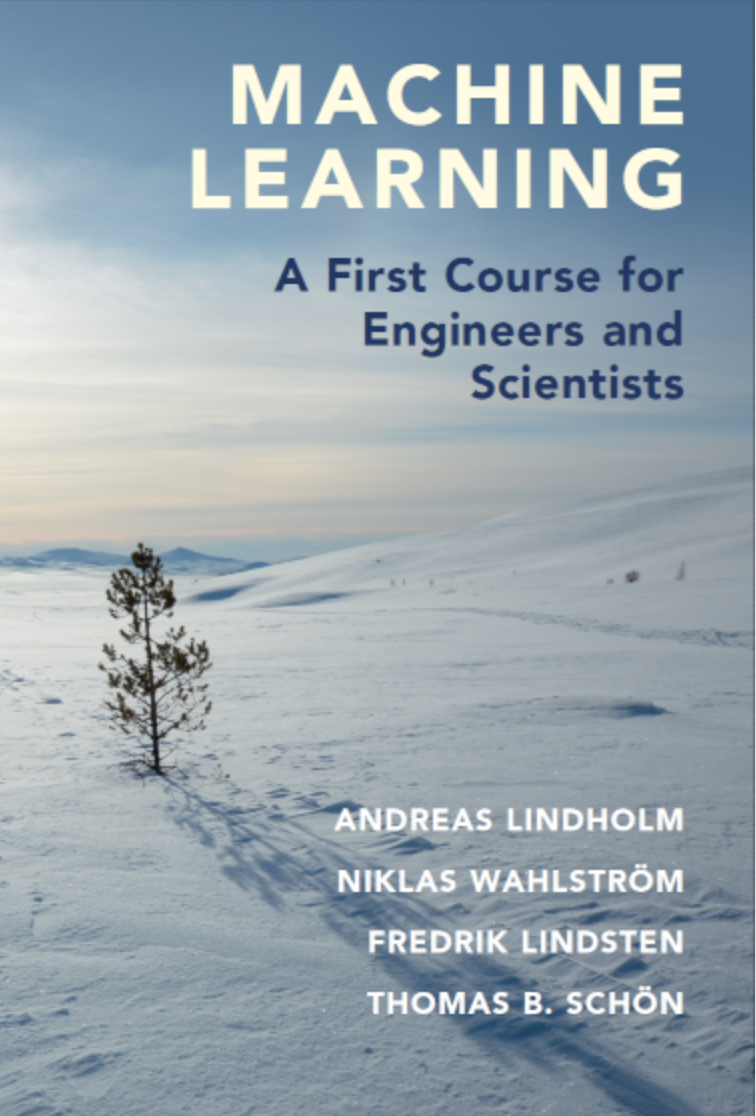免费书:《机器学习——工程师和科学家的第一课》
2022年由剑桥大学出版社出版
《Machine Learning - A First Course for Engineers and Scientists | sml-book-page》Andreas Lindholm, Niklas Wahlström, Fredrik Lindsten, and Thomas B. Schön
电子版下载地址:
https://event-cdn.baai.ac.cn/file/file-browser/S3wpKDDbFxnkT448mMyZsYwsWiRDRGBk.pdf

Table of Contents
-
Introduction
-
The machine learning problem
-
Machine learning concepts via examples
-
About this book
-
-
Supervised machine learning: a first approach
-
Supervised machine learning
-
A distance-based method: k-NN
-
A rule-based method: Decision trees
-
-
Basic parametric models for regression and classification
-
Linear regression
-
Classification and logistic regression
-
Polynomial regression and regularization
-
Generalized linear models
-
-
Understanding, evaluating and improving the performance
-
Expected new data error: performance in production
-
Estimating the expected new data error
-
The training error–generalization gap decomposition
-
The bias-variance decomposition
-
Additional tools for evaluating binary classifiers
-
-
Learning parametric models
-
Principles pf parametric modelling
-
Loss functions and likelihood-based models
-
Regularization
-
Parameter optimization
-
Optimization with large datasets
-
Hyperparameter optimization
-
-
Neural networks and deep learning
-
The neural network model
-
Training a neural network
-
Convolutional neural networks
-
Dropout
-
-
Ensemble methods: Bagging and boosting
-
Bagging
-
Random forests
-
Boosting and AdaBoost
-
Gradient boosting
-
-
Nonlinear input transformations and kernels
-
Creating features by nonlinear input transformations
-
Kernel ridge regdression
-
Support vector regression
-
Kernel theory
-
Support vector classification
-
-
The Bayesian approach and Gaussian processes
-
The Bayesian idea
-
Bayesian linear regression
-
The Gaussian process Online material: Gaussian process visualization
-
Practial aspects of the Gaussian process
-
Other Bayesian methods in machine learning
-
-
Generative models and learning from unlabeled data
-
The Gaussian mixture model and discriminant analysis
-
Cluster analysis
-
Deep generative models
-
Representation learning and dimensionality reduction
-
-
User aspects of machine learning
-
Defining the machine learning problem
-
Improving a machine learning model
-
What if we cannot collect more data?
-
Practical data issues
-
Can I trust my machine learning model?
-
-
Ethics in machine learning (by David Sumpter)
-
Fairness and error functions
-
Misleading claims about performance
-
Limitations of training data
-
内容中包含的图片若涉及版权问题,请及时与我们联系删除



评论
沙发等你来抢